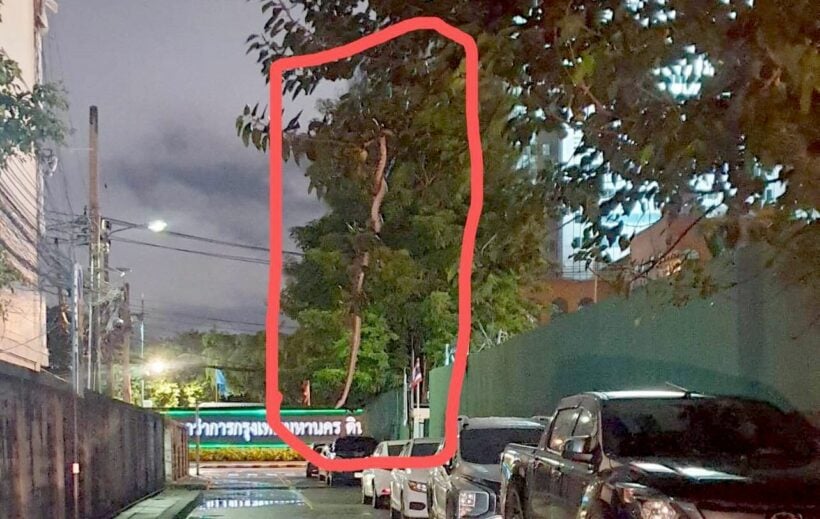Bangkok nabs 60,000 snakes a year, 1 reported every 15 minutes

Bangkok is well known for its hundreds of temples and thousands of… snakes. Emergency hotline employees reported that they capture and remove around 60,000 snakes per year in the capital city. Calls come in for help with snake removal at an average rate of about one every 15 minutes throughout the day.
The 199 hotline handles calls regarding snakes in Bangkok, a more prevalent problem than some would expect. The statistics were publicised after a photo went viral of a huge boa constrictor lounging in a tree in the Din Daeng district, freaking out residents.
The workers at the Bangkok emergency hotline explained yesterday that they receive about 200 calls per day for help with pests, with half of those calls being about snakes. Other problem animals like wasps, water monitors, and more make up the rest of the calls.
When they get a call, they corral up the snake and bring it to the Department of National Parks, Wildlife and Plant Conservation in turn releasing them in the wild in a more appropriate and less urban location. They boast a capture success rate of 90%, though, for the pessimist, the math on that says that 3,000 to 6,000 snakes a year go uncaptured and are on the loose in Bangkok.
While it seems like the urban environment of a bustling city is an unlikely place for snakes to live, it turns out they have no natural direct predators in the city (except maybe being run over by cars?) so they often thrive. The Zoological Park Organisation estimates that each of the 50 districts in Bangkok has around 1,000 wild snakes in them, with no predators and plenty of prey.
“The high population of snakes in Bangkok is due to its citizens not consuming snakes, meaning the reptiles have no direct predators in the city while having an abundance of prey such as dogs, cats, and chickens.”
They have no formal count of the snake population in the capital city, so the numbers are just educated estimates. But, of the snakes captured in Bangkok, usually, about 10% are pythons and the remaining 90% are boas.
SOURCE: Bangkok Post
Latest Thailand News
Follow The Thaiger on Google News:


























